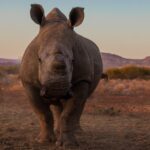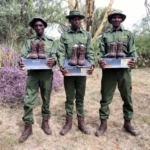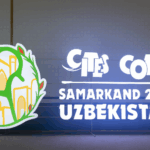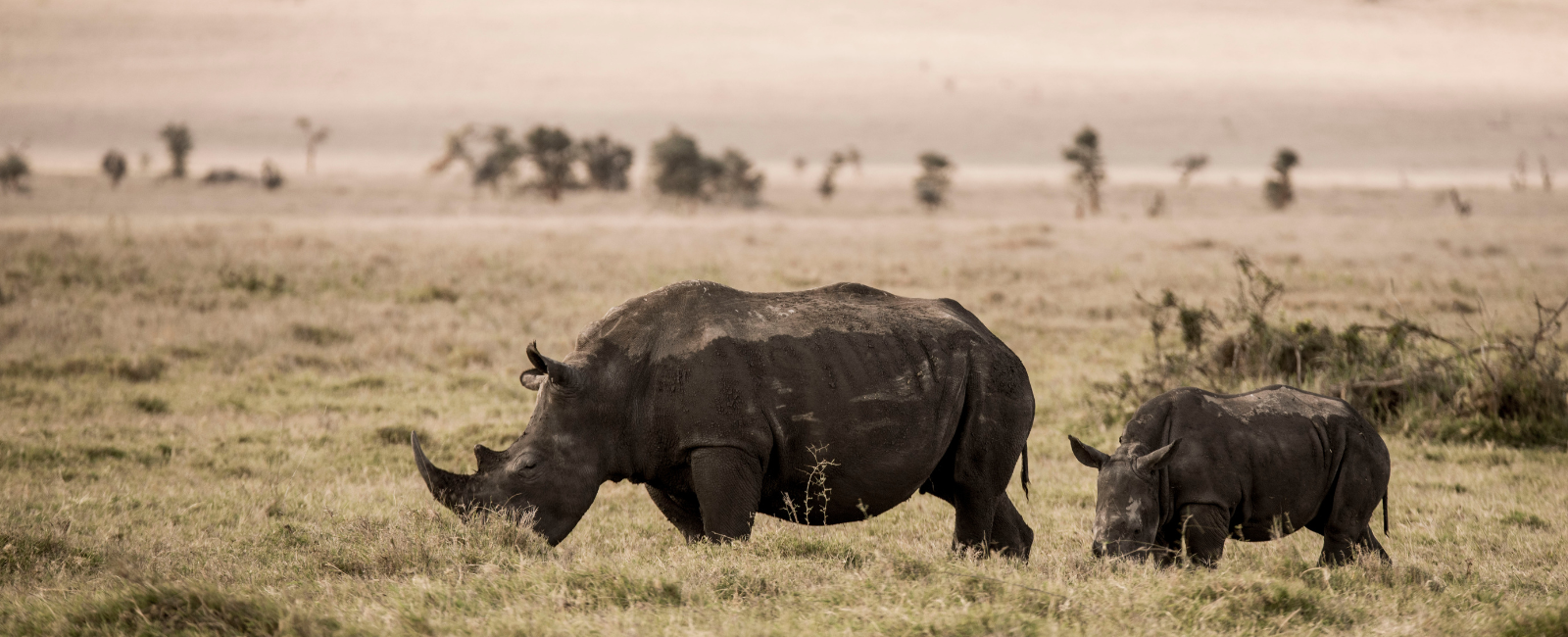
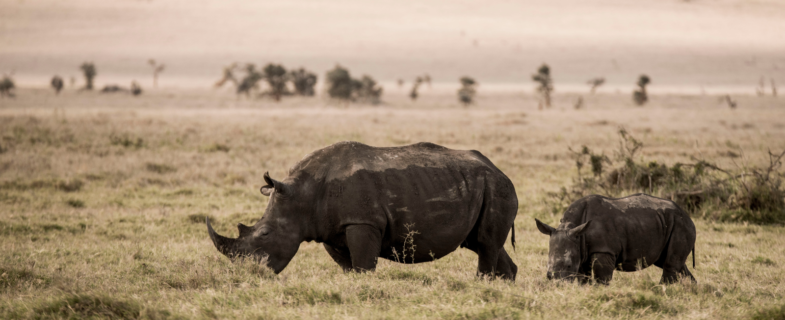
African Rhino Specialist Group
The African Rhino Specialist Group (AfRSG) is a primarily volunteer-led group of experts with a focus on improving the conservation success of Africa’s rhinos across all their remaining Range States and beyond. This Specialist Group is one of many such Groups established under the directive of the International Union for Conservation of Nature’s (IUCN) Species Survival Commission (SSC).
Comprised of a range of experts in various specialised fields of African rhino conservation from trade to translocations, it is the go-to scientific body for African rhino conservation and population statistics.
Non-partisan and informed by evidence and experience, the Group’s role is to understand the challenges facing Africa’s rhinos and the best tools to address these threats, whilst ensuring conservationists are working together towards a common goal.
The problem
The Group has seven objectives:
- Persistent populations: To establish and enhance healthy and persistent rhino populations through advising and facilitating the efficient protection and dynamic biological management of African rhinos within their natural range
- Sustainable conservation: To foster multiple values of rhinos for all peoples’ well-being through promoting sustainable conservation
- Facilitation: To facilitate research, collate information and report on the status of African rhinos to the IUCN and other parties
- Communication: To support targeted communication to a wide range of stakeholders
- Capacity building: To ensure effective leadership through capacity building and mentorship of the next generation of rhino conservationists
- Financial: To promote sustainable finance and good governance for African rhino conservation
- Governance management: To manage, monitor, and evaluate the Group via effective, efficient, and transparent governance
How is the Group contributing to rhino conservation?
Africa’s rhinos are threatened by poaching, habitat loss and reduced birth rates due to density-dependent factors that reduce breeding rates and exacerbate mortalities from fighting. An independent, pragmatic, and impartial panel of experts is needed to inform policy and ensure consistent, yet adaptive procedures are adhered to when planning rhino management strategies.
The Specialist Group works with all African countries in which rhinos are found and have in-country representatives including Angola, Botswana, Chad, DR Congo, Eswatini, Kenya, Malawi, Mozambique, Namibia, Rwanda, South Africa, Tanzania, Uganda, Zambia and Zimbabwe.
It meets every two – three years to collect rhino population statistics, analyse trends in individual countries for rhino species and sub-species, support the development of continental and national rhino recovery plans, and share best practice between conservation programmes.
The Specialist Group has also developed a suite of resources for rhino conservationists around the world, including a written report for each edition of Pachyderm, a peer-reviewed journal available online, and provides hands-on support to numerous national wildlife authorities looking to develop rhino conservation practices. Other specific areas in which the AfRSG has contributed include:
- The review and, when necessary, dispute of scientific publications submitted to peer-reviewed journals about research into rhino behaviour, ecology, populations, and threats. Most recently, the Group has peer-reviewed papers relating to influences on reproductive success and prepared a rebuttal to a paper suggesting that hunting pressures have reduced rhino horn length
- The provision of the most comprehensive scientific evidence and information possible to CITES in advance of the Convention’s Conference of the Parties every three years. As well as sharing information on best practice for maximum growth of rhino populations and other developments in rhino conservation, the Group also shares knowledge about the illegal trade in rhino horn and trafficking routes. It advises CITES Parties on key issues, such as whether particular countries need more support in anti-poaching, or whether CITES Parties should take action against countries that fail to make headway in tackling the illicit wildlife trade
- Advice and recommendations to bodies proposing the re-establishment of rhino populations in locations in which they have been previously extirpated (i.e. Mozambique) as well as situations where suitable ecological replacements are needed to replace subspecies that have gone extinct such as the Western black rhino in Benin or the Northern white rhino in the Democratic Republic of Congo
- Collaboration with the Asian Rhino Specialist Group (AsRSG) and ex situ organisations such as zoos
Our work
Save the Rhino International has supported the AfRSG since 2006 and both our current and future CEOs, Cathy Dean and Dr Jo Shaw respectively, are Members. In recent years, our financial support has been directed towards consultancy fees and transport costs for the Group’s Scientific Officer and Programmes Officer; the costs of the AfRSG meetings; and the annual issues of Pachyderm, an international peer-reviewed journal that deals primarily with matters relating to the conservation and management of the African elephant and African and Asian rhino in the wild. Cathy and Jo are both active participants in a range of AfRSG Working Groups and Task Forces.
In 2022, due to the continued travel restrictions brought about by the COVID-19 pandemic, we coordinated and ran the triennial AfRSG meeting online. This event provided a platform for discussions about current rhino conservation affairs, updates from individual Range State Representatives and general group bonding activities and workshops.
 Protecting Rhinos
Protecting Rhinos
 Reducing Illegal Horn Trade
Reducing Illegal Horn Trade
 Involving Communities
Involving Communities
 Bringing Experts Together
Bringing Experts Together


